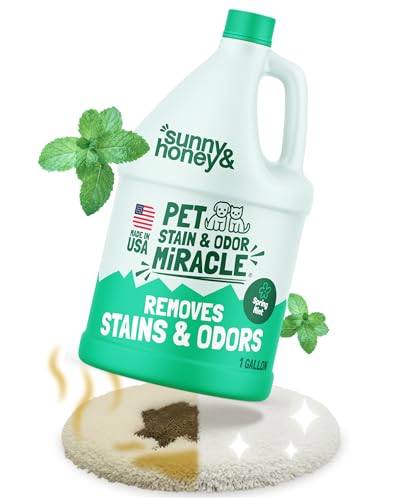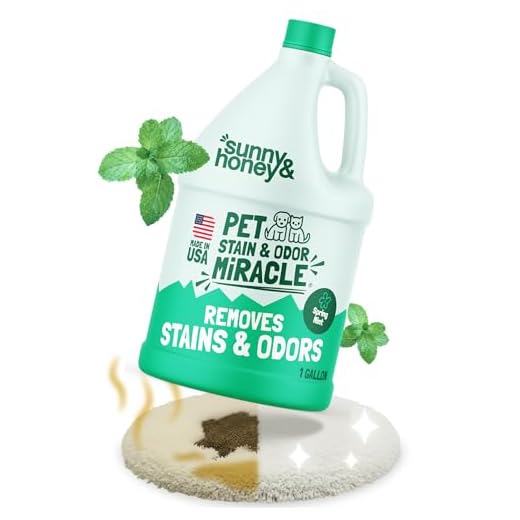



For pet owners, selecting the right upholstery can significantly impact both the durability of their seating and the comfort of their furry companions. This article focuses on identifying the most suitable fabrics that withstand claws and fur while remaining aesthetically pleasing.
You’ll find valuable insights into various types of materials, their resilience against scratches, and how easy they are to clean. Whether you have a playful kitten or a more reserved adult cat, the recommendations here cater to different lifestyles and preferences.
By the end of this article, you will have a clear understanding of which choices provide the best balance of style and practicality. From synthetic fibers to natural options, our guide will help you make informed decisions that enhance your living space while keeping your pets happy.
Optimal Choices for Cat-Friendly Home Decor
Choosing the right coverings for your home is paramount when sharing your space with felines. Certain options not only withstand wear and tear but also remain aesthetically pleasing. Fabrics such as microfibre and synthetic blends prove resilient against scratches and stains.
Wooden surfaces, particularly those with a durable finish, provide a robust alternative. They resist claw marks better than softer materials and can be easily maintained. Additionally, metal elements can be advantageous, as they are less likely to suffer damage from playful paws.
Durable Options to Consider
- Microfibre: This synthetic fabric is known for its resistance to scratches and stains, making it ideal for active households.
- Leather: Though it may be more expensive, genuine leather can withstand scratches and is easy to clean.
- Wood: Hardwoods like oak or maple are sturdy choices, especially when treated with protective coatings.
- Vinyl: A practical alternative, vinyl is tough and easy to wipe clean, preventing odors and stains.
When selecting coverings, consider textures that discourage scratching. For example, tightly woven fabrics are less appealing for clawing than looser weaves. Additionally, opting for darker colors can help camouflage any minor blemishes that may occur over time.
Lastly, always ensure that the materials chosen allow for easy maintenance. A regular cleaning routine can prolong the life of your chosen pieces, ensuring they remain both functional and stylish in a home shared with feline companions.
Durability of Fabrics: Choosing the Right Upholstery
Selecting resilient upholstery is key to maintaining furniture’s appearance and longevity, especially in homes with playful pets. Certain fabrics stand out for their ability to withstand wear and tear, making them suitable for environments where claws and fur are common.
Consider options such as synthetic fibers, which often resist stains and are easier to clean. Fabrics like microfiber and polyester are particularly strong against scratches and can endure frequent use without showing significant signs of damage.
Key Factors in Upholstery Selection
Beyond the fabric type, several aspects influence the durability of upholstery:
- Weave Density: Tightly woven fabrics provide a tougher barrier against claws and prevent snags.
- Finish: Look for treatments that enhance resistance to stains and moisture, making cleaning simpler.
- Pilling Resistance: Fabrics that resist pilling maintain a cleaner look over time, ideal for high-traffic areas.
Evaluating these characteristics can lead to a more informed decision when selecting upholstery that stands up to the challenges posed by feline companions. Prioritizing durability will ensure that your seating remains both stylish and functional, regardless of daily antics.
Scratching Resistance: Evaluating Surface Options
Choosing surfaces that can withstand the natural instincts of felines is essential for maintaining the integrity of home decor. Certain textures and finishes provide varying levels of durability against scratching, impacting both aesthetics and longevity.
Wood, particularly hardwood varieties, offers a robust option due to its dense grain. However, unprotected surfaces may succumb to damage over time. Applying a high-quality sealant can enhance scratch resistance, ensuring that the wood retains its charm for longer.
Comparative Analysis of Surface Types
When evaluating alternatives, consider the following:
- Fabric: Microfiber tends to resist clawing better than traditional upholstery. Its tight weave makes it less prone to fraying.
- Leather: Genuine leather offers a sophisticated appearance and can withstand moderate scratching. However, it requires regular maintenance to prevent wear.
- Vinyl: This synthetic option is highly resistant to scratches and easy to clean, making it a practical choice for households with active pets.
- Laminate: Durable and scratch-resistant, laminate surfaces mimic the appearance of wood while providing a protective layer against damage.
Each surface presents distinct advantages and disadvantages. Understanding these characteristics enables better selection tailored to lifestyle needs. Evaluate the level of activity and scratching tendencies of your feline companion before making a decision.
Stain-Resistant Materials: Keeping Your Furniture Clean
Choosing fabrics that resist stains can save time and effort in maintaining a tidy living space. Opt for synthetic fibers like polyester or nylon, which are designed to repel spills and dirt effectively.
Another excellent choice is treated cotton or linen, which can withstand everyday messes while providing a classic look. Selecting these options helps ensure that your seating remains fresh and inviting even in the presence of furry friends.
Cleaning Tips and Maintenance
Regular maintenance is key to preserving the appearance of your surfaces. Here are some strategies to keep in mind:
- Immediate Cleanup: Wipe up spills as soon as they occur to prevent stains from setting.
- Use Mild Detergents: Opt for gentle cleaning solutions to avoid damaging the fabric.
- Test Before Full Application: Always test cleaning agents on a hidden area to ensure they won’t cause discoloration.
Vacuuming frequently helps eliminate hair and debris, reducing the chances of lasting stains. Additionally, consider using slipcovers, which can be easily removed and washed, offering an extra layer of protection.
By selecting the right materials and maintaining them properly, it’s possible to enjoy a stylish space that remains clean and welcoming, even with playful companions around.
Comfort and Safety: Ensuring a Cozy Space for Your Cat
Choosing the right elements for your living space can significantly enhance your feline’s comfort and security. Opt for soft fabrics that provide a warm environment, such as microfibers or cotton blends, which are easy to clean. These materials are less likely to cause irritation to sensitive paws and provide a cozy spot for relaxation.
Incorporating sturdy structures, like wooden or metal frames, ensures that furniture can withstand playful antics. Ensure that any items chosen are free from sharp edges or loose components, which could pose a danger. A stable base is essential for your furry friend to feel secure while exploring their surroundings.
Creating a Safe Haven
Design a designated area where your feline can feel safe. Consider placing a plush bed or blanket in a quiet corner. This will give your pet a space to retreat and relax. Using soft cushions can also enhance this area, providing additional comfort.
To complement this cozy environment, add vertical spaces like shelves or cat trees, which allow for climbing and observation. Cats enjoy surveying their territory from a height, and these structures can help keep them engaged and active.
- Ensure that all fabrics used are durable and resistant to scratches.
- Incorporate cat-friendly plants that are non-toxic.
- Keep cords and small items out of reach to prevent choking hazards.
Regularly assess your pet’s space, checking for wear and tear. Replacing worn items promptly will help maintain a safe atmosphere. By focusing on comfort and safety, you create an inviting environment that caters to your cat’s natural instincts and enhances their quality of life.
Maintenance Tips: Caring for Cat-Friendly Furniture
Regular cleaning is essential for maintaining the condition of items in a pet-friendly environment. Use a vacuum cleaner with a pet hair attachment to remove fur and dander from surfaces. For fabric pieces, consider using a lint roller for quick touch-ups.
When dealing with scratches or stains, it is crucial to address them promptly. For minor scratches on wood, a furniture polish or a walnut can help to conceal imperfections. For upholstery, check the manufacturer’s cleaning recommendations and use appropriate cleaners to avoid damage.
Additional Care Strategies
- Protective Covers: Use slipcovers or throws on upholstered pieces to safeguard against scratches and accidents.
- Cleansing Solutions: Invest in pet-safe cleaning products to maintain hygiene without harming your furry friends.
- Regular Inspections: Periodically check for wear and tear, especially on scratching posts and soft surfaces.
- Rotate Items: Move items around to avoid excessive wear on specific areas and provide a fresh look.
By implementing these strategies, you can extend the life of your selections and create a harmonious living space for both you and your furry companions.
Best material for furniture with cats
Features
| Part Number | B00WNEB4BU |
| Model | SYNCHKG078273 |
| Size | 128 Fl Oz (Pack of 1) |
Features
| Model | Copley Platinum |
| Color | Grey |
| Size | 54 Inches |
Features
| Color | Beige |
| Size | 5-seat-Right Facing Chaise |
Features
| Part Number | SIS-PMT25L |
| Model | SIS-PMT25L |
| Size | 84.5 Fl Oz (Pack of 1) |
Features
| Part Number | Mpj008 |
| Model | CY78 |
| Warranty | 2 |
| Color | Black |
Features
| Part Number | OSOR-1117 |
| Model | OSOR-1117 |
| Size | 128 Fl Oz (Pack of 1) |
Video:
FAQ:
What materials are best for furniture if I have cats?
When choosing furniture for a home with cats, it’s important to consider materials that are durable and easy to clean. Some of the best options include microfiber, leather, and certain types of wood. Microfiber is known for its stain resistance and durability, making it a popular choice. Leather, while more expensive, can withstand scratching and is easy to wipe clean. Hardwood surfaces, such as oak or maple, are also sturdy and can be refinished if scratched. Additionally, fabrics like canvas or tightly woven textiles can offer durability while still being comfortable.
How can I protect my furniture from cat scratches?
To protect your furniture from cat scratches, you can use several strategies. First, consider applying protective covers, such as slipcovers or throws, made from durable fabrics. You can also place scratching posts or pads near your furniture to encourage your cat to scratch them instead. Additionally, using anti-scratch sprays can deter your cat from scratching specific areas. Regular nail trimming can also minimize damage, as shorter nails are less likely to cause significant scratches. Finally, positioning your furniture in a way that makes it less accessible to your cat can help reduce wear.
Are there specific types of wood that are better for cat-friendly furniture?
Certain types of wood are indeed better suited for cat-friendly furniture. Hardwoods like oak, maple, and cherry are strong and durable, making them ideal choices. These woods can withstand wear and tear from scratches better than softer woods like pine. Additionally, choosing furniture with a high-quality finish can help protect the wood from scratches and stains. It’s also worth considering furniture designed specifically for pet owners, which often incorporates features that enhance durability and ease of maintenance.
What should I avoid when selecting furniture for a home with cats?
When selecting furniture for a home with cats, there are several materials and designs you might want to avoid. Fabrics like velvet or loose weaves can easily trap hair and are more prone to damage from claws. Avoid delicate materials that stain easily or cannot withstand cleaning, such as silk or light-colored upholstery. Additionally, furniture with intricate designs or open spaces can collect cat hair and be challenging to clean. Opting for simpler, more durable designs will make maintenance easier and help keep your furniture looking good longer.









